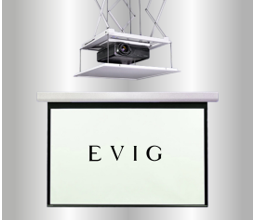Mutf_In: Kota_Emer_Equi_6og8kj

The Mutf_In initiative, known as Kota_Emer_Equi_6og8kj, represents a significant effort in urban sustainability and community engagement. By harnessing local resources, it encourages collaboration among residents to promote sustainable practices. This initiative not only fosters social cohesion but also aims to create shared spaces for knowledge exchange. However, it encounters obstacles in maintaining participation and resilience. The implications of these challenges for urban communities deserve closer examination.
Overview of Mutf_In Initiative
The Mutf_In initiative aims to foster innovation and collaboration within the community by leveraging local resources and expertise.
By promoting community engagement, it seeks to empower residents to participate actively in sustainable practices.
This initiative encourages individuals to share knowledge and skills, creating a supportive environment where collective efforts contribute to long-term ecological and social well-being, ultimately enhancing the community’s resilience and independence.
Key Features and Innovations
Building on the foundation of community engagement established by the Mutf_In initiative, several key features and innovations have emerged to enhance its impact.
Notably, the integration of sustainable design principles promotes environmental stewardship while fostering collaborative spaces for shared experiences.
These advancements empower communities to take ownership of their environments, ultimately enhancing the initiative’s effectiveness in addressing urban challenges and fostering resilience.
Impact on Urban Communities
While urban communities face numerous challenges, the Mutf_In initiative has demonstrated a significant positive impact by fostering social cohesion and resilience.
By promoting community engagement, it empowers residents to collaborate on sustainable projects, enhancing urban sustainability.
This initiative not only addresses immediate needs but also cultivates a sense of ownership and pride among community members, ultimately leading to stronger, more vibrant urban environments.
Challenges and Future Prospects
Although the Mutf_In initiative has made strides in enhancing urban communities, it faces several challenges that could hinder its long-term success.
Key issues include the need for robust sustainability strategies and sustained community engagement. Without addressing these factors, the initiative may struggle to maintain momentum, ultimately affecting its ability to foster resilience and empowerment in urban settings, limiting its potential impact.
Conclusion
In conclusion, the Mutf_In initiative stands as a vibrant tapestry woven from the threads of community collaboration and sustainable practices. By cultivating shared spaces for knowledge exchange, it nurtures a garden of social cohesion and environmental stewardship. Though challenges may cast shadows, the promise of resilience shines brightly, illuminating a path toward a more sustainable urban future. As community members come together, they create not just a project, but a living mosaic of hope and collective empowerment.



